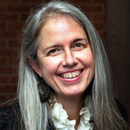How to shine your light in the darkness

Daily Scripture
Isaiah 58:5-10
5 Is this the kind of fast I choose,
a day of self-affliction,
of bending one’s head like a reed
and of lying down in mourning clothing and ashes?
Is this what you call a fast,
a day acceptable to the LORD?
6 Isn’t this the fast I choose:
releasing wicked restraints, untying the ropes of a yoke,
setting free the mistreated,
and breaking every yoke?
7 Isn’t it sharing your bread with the hungry
and bringing the homeless poor into your house,
covering the naked when you see them,
and not hiding from your own family?
8 Then your light will break out like the dawn,
and you will be healed quickly.
Your own righteousness will walk before you,
and the LORD’s glory will be your rear guard.
9 Then you will call, and the LORD will answer;
you will cry for help, and God will say, “I’m here.”
If you remove the yoke from among you,
the finger-pointing, the wicked speech;
10 if you open your heart to the hungry,
and provide abundantly for those who are afflicted,
your light will shine in the darkness,
and your gloom will be like the noon.
Daily Reflection & Prayer
When Jesus said to love your neighbor, many in his day wanted to limit that to their Israelite neighbors—and even that was a hard ideal to live up to. Isaiah 58 spoke to Israelites who did many “religious” things, including fasting, but did so from self-serving motives. Why, they asked, didn’t God honor their feasts and fasts? The prophet said their piety was only skin-deep. They didn’t need showy, external fasts from some food. They needed to “fast” from injustice.
- Jesus echoed the message of Isaiah 58 when he said, “Go and learn what this means: ‘I want mercy and not sacrifice’” (Matthew 9:13). How have you seen your Bible study, prayer and worship change your heart and move you to get involved in blessing others rather than seeking only your own advantage? How are you growing in your ability to show mercy? Who are the people in your life that you could extend mercy to today?
- Through Isaiah, God asked, “Isn’t this the fast I choose: releasing wicked restraints, untying the ropes of a yoke, setting free the mistreated, and breaking every yoke? Isn’t it sharing your bread with the hungry and bringing the homeless poor into your house, covering the naked when you see them, and not hiding from your own family?” What would it take for you to “fast” in comparable ways today? What is one truly life-changing spiritual practice you can adopt now?
Prayer
Heavenly Father, thank you for opening my eyes and heart to care for and show mercy to your children in need. Use me and whatever good things I have so that through me “your light will shine in the darkness.” Amen.
GPS Insights

Amy Oden
Dr. Amy Oden is Professor of Early Church History and Spirituality, teaching at several seminaries. Teaching is her calling, and she looks forward to every day with students. Her latest book (Right Here, Right Now: The Practice of Christian Mindfulness, Abingdon Press, 2017) traces ancient mindfulness practice for Christians today.
I teach spiritual formation in a variety of settings, which means I teach spiritual practices. I love it and am grateful to walk alongside folks exploring their spiritual lives, folks who want to grow deeper.
But sometimes I worry that students will get the idea that growing deeper means adding a bunch of new spiritual practices to their already-overwhelmed lives. It’s easy to focus on getting all the steps of a spiritual practice just right or trying to be sure to “do enough” for it to count as spiritual. This moves very quickly from a genuine desire to grow deeper into “performing religion.”
“Performing religion” is a phrase that scholars use to describe going through the motions of our spiritual lives as though the point of it all is to go through the motions. When we “perform religion” our security is anchored in “doing it right” and “doing it to be seen doing it.” Spirituality becomes a performance we enact for ourselves and for others rather than an actually-lived-experience. We miss the chance to connect with the Holy One or to see fruit of that connection in our lives, such as kindness, gentleness, mercy, joy.
Isaiah 58 reminds us we are prone, when we want to grow deeper, to end up “performing religion.” We get the two confused so easily that Isaiah calls it out: the people displaying their fasting as self-affliction and showing off their mourning (v. 5).
For me, growing deeper usually looks like pausing to pay attention to what God is already up to in my life, rather than adding on more religious stuff. Where is new life blossoming, however tentatively? What holy invitations seem to nudge me? What is dying in my life that I need to let go?
What is drawing you deeper? Pause and pay attention.
